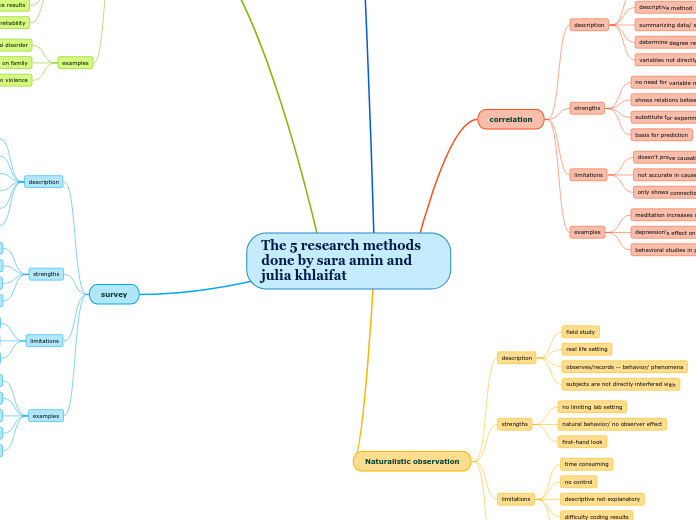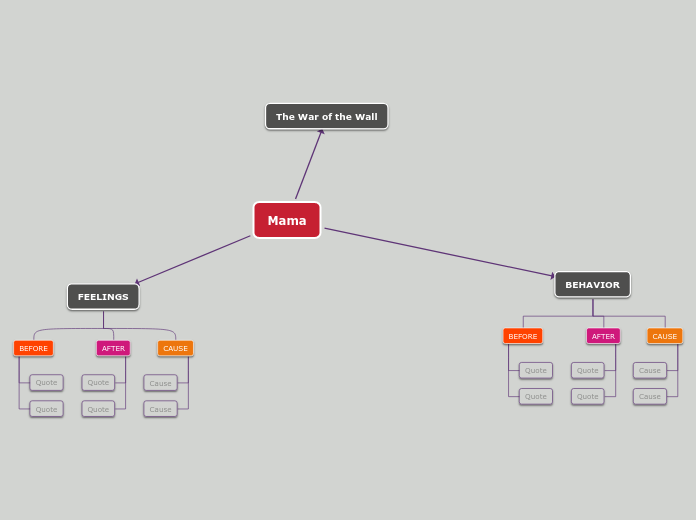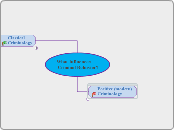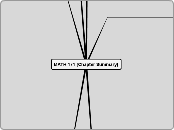によって julia khlaifat 4年前.
242
The 5 research methods done by sara amin and julia khlaifat
Sara Amin and Julia Khlaifat's work delves into five distinct research methods, focusing on naturalistic observation, correlation studies, and case studies, among others. Naturalistic observation involves studying behaviors in their real-life settings without direct interference, offering an unobstructed view of natural behavior, though it faces challenges like difficulty in replication and lack of control.
開く
The 5 research methods done by sara amin and julia khlaifat survey ratings service satisfaction demographic survey opinions polls consumer survey low response rate self report -- misunderstanding/ biases. quick and easy low cost - practical qualitative/ emotional feedback large number of subjects sometimes interviewer present sometimes self report closed-ended or open-ended questions data : interviews, questionnaires. no direct observation descriptive study case study reaction of group of kids to violence effects of divorce on family studying patient with mental disorder questions on validity/reliability research highly involved -- feelings influence results hard to replicate not representative also substitute for experimental method. understanding factors surrounding object or indivisual detailed view of phenomena or individuals life biographic data/ medical history/ interviews/ psychological tests collecting/examining observations and records in-depth descriptive record kept by observer investigation Naturalistic observation imposter observing how a group thinks observing baby's reaction to different stimuli observing animal behavior in wilderness difficulty replicating difficulty coding results descriptive not explanatory no control time consuming first-hand look natural behavior/ no observer effect no limiting lab setting subjects are not directly interfered with observes/records -- behavior/ phenomena real life setting field study correlation behavioral studies in psychology depression's effect on exam performance meditation increases concentration only shows connection of two variables in systematic way not accurate in cause-effect relations doesn't prove causation basis for prediction substitute for experimental method shows relations between variables no need for variable manipulation description variables not directly manipulated. determine degree relation between two or more variables. summarizing data/ statistical tool descriptive method non-experimental experimental examples experiment on water type best suited for plants experiment on mentos in soda limitations some variables, hard to control. controlled environments don't reflect natural setting not suitable or ethical in all situations strengths practical and ethical in appropriate occurrences can be repeated several times can be controlled however shows cause and effect relations describtion done in controlled setting cause and effect observing effect on other variables manipulating variables begins with hypothesis









